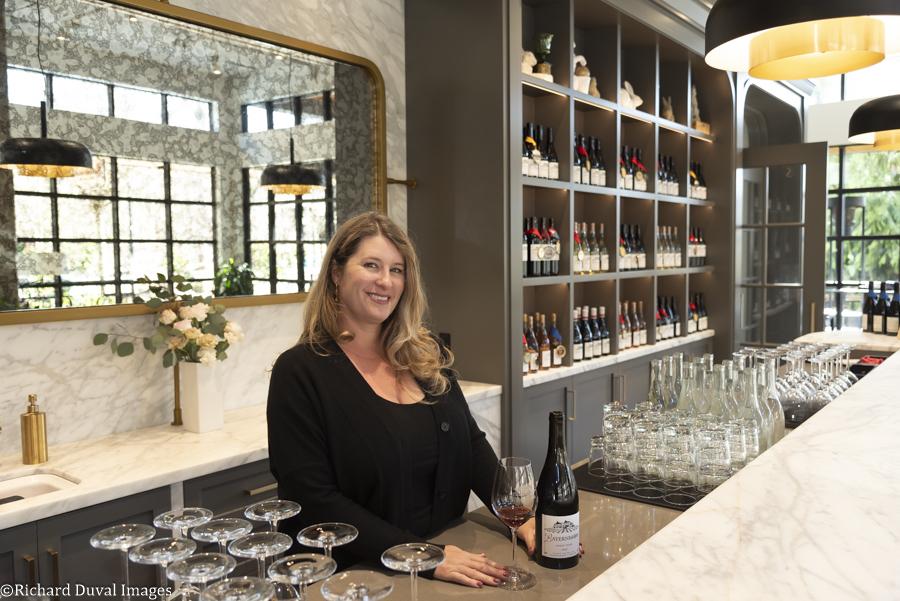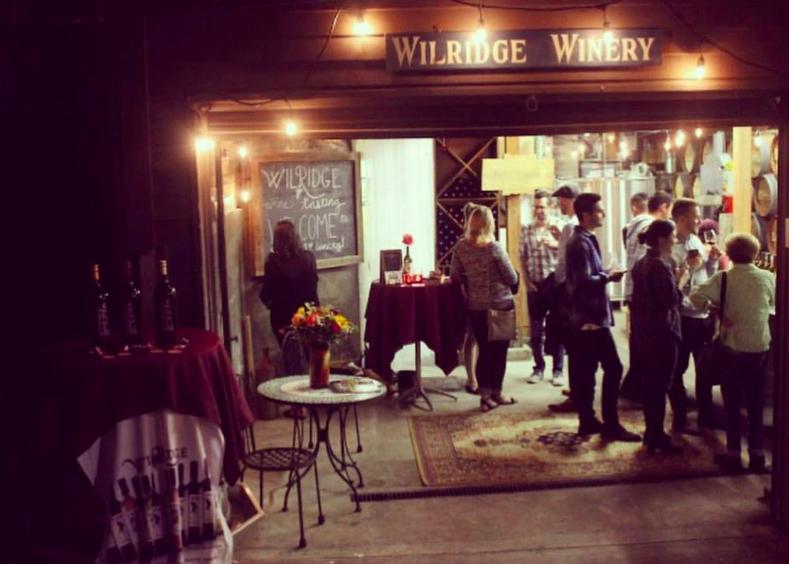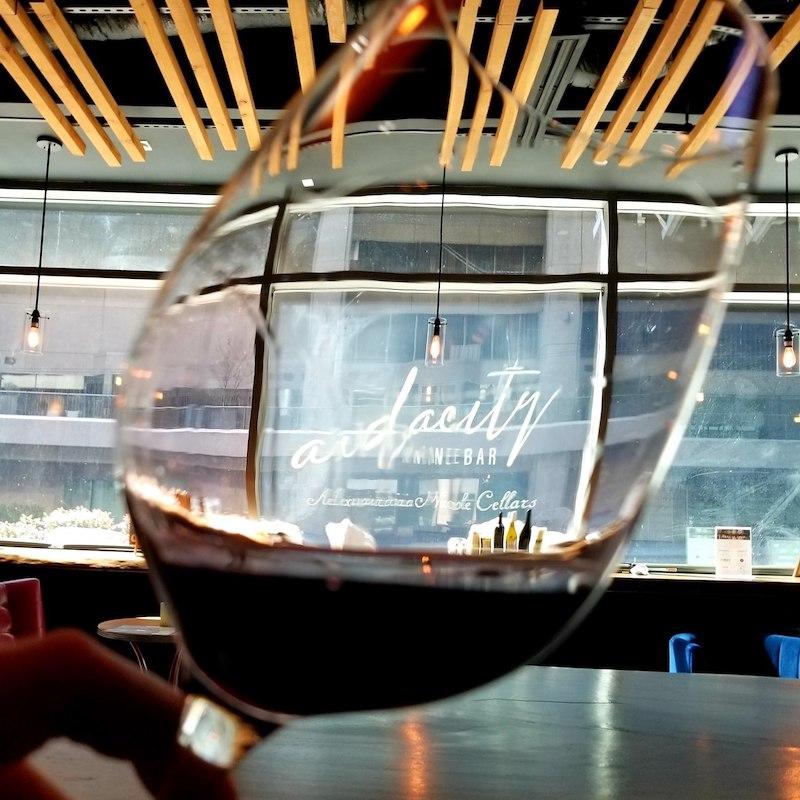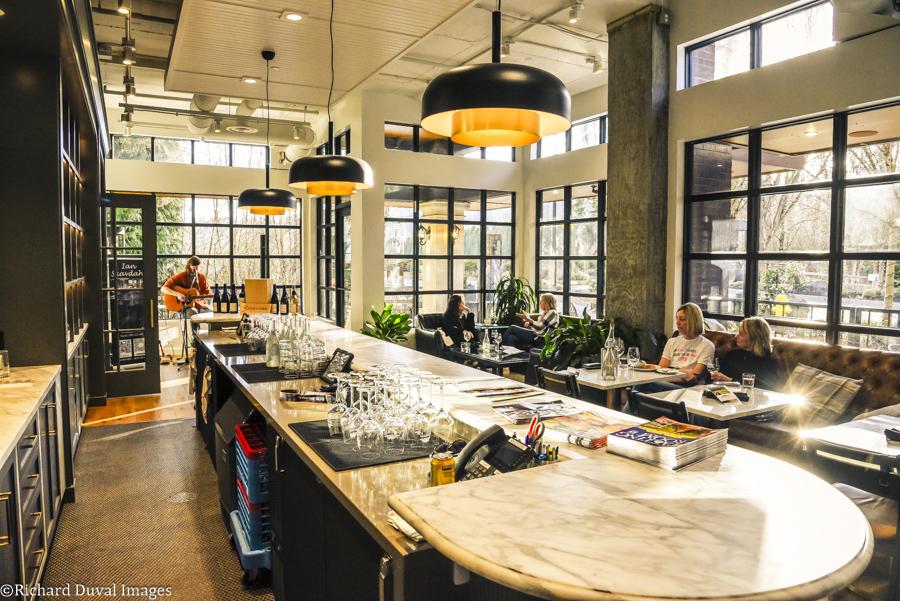
Across the Puget Sound region, wineries are rethinking the traditional tasting room model. They are adding new locations, expanded hours and special events to both meet current customer demand and to entice new customers to visit.
Tinte Cellars opened its new Georgetown tasting room during the first wave of the pandemic. The owners, Tim Gamble and Teresa Spellman Gamble, wanted a fun and creative space to host food and wine pairings, trivia nights, and community events, as their Woodinville location, a fully functional winery, has limited area for entertainment.
“The traditional model is pretty much gone,” says Cameron Mason, general manager of Tinte Cellars. “People want experiences. They want to come in, spend time and hang out.”
Research prompts wineries to provide dining

This new ethos is echoed by wineries across the Puget Sound region. Wineries are carefully choosing new neighborhoods for expansion that have regular traffic and may or may not be wine-only destinations as well as including more extensive food options.
“The view of wine is changing, and we need to keep up with the new generation,” says Kim Harris, who owns Bayernmoor Cellars with her winemaking husband, Larry. “We need to reach, match and exceed their expectations or they won’t stay interested.”
Mason points out, “We gotta give [patrons] a reason to come out. In the city, at 7 p.m., people are like, ‘I just really want to enjoy some wine with my friends.’ ”
Tinte’s Georgetown location was chosen because of its funky neighborhood vibe and up-and-coming craft beverage scene, which can support a venue that stays open until 8 or 9 p.m. Tasting flights are not as appealing as they used to be, says Mason, especially to new and younger customers — an audience whom the wine industry is struggling to attract.
Paul Beveridge, owner of Seattle’s oldest urban winery, Wilridge Vineyard, Winery & Distillery, concurs.
“Young people don’t want to drink what their parents drink,” he says.
Unusual varieties, cocktails, baked pies

This is one reason Wilridge offers so many varietals, including Zweigelt, Sagrantino, Touriga Naçional and Nebbiolo. Beveridge grows each of those on his estate in the Naches Heights American Viticultural Area west of Yakima, and they provide him something to share, in addition to other Northwest classics that he also produces.
Wilridge is seeking approval to create cocktails at its Madrona location, which has been operating as a pop-up on most Fridays and Saturdays. Beveridge also is considering bringing pies to Madrona because the menu of sweet and savory pies has proven to be extremely popular at his Woodinville tasting room. Neighbors often stop by for a glass on their way to dinner.
“We’re not selling wine,” Beveridge says. “We’re selling an experience.”
Beveridge was a founding partner in the Wines of Washington Tasting Room in the Pike Place Market. The partners intended the venue to be a tasting room, and while they do sell flights and bottles, it functions more as a wine bar.
“We believe in giving people what they want,” Beveridge says, noting that this model has been working for 20 years and remains popular.
Wine bar vs. tasting room

Nestled in a jewel box of a space across from the recently expanded Seattle Convention Center is Audacity Wine Bar, which offered Alexandria Nicole Cellars wines and small bites until it was paused recently by the storied producer based in the Horse Heaven Hills.
“We wanted to do something different,” says Ali Boyle, co-owner and namesake of the winery. Opening just before COVID-19, their original idea was to offer glass pours of their wine, and then perhaps add other wines, but with the pandemic going on, they stuck with their brands.
“We were hoping to reach out to locals and provide a little Cheers-like area to gather,” she says.
Locals regularly stopped in for a glass as well as wandering tourists seeking respite in a wine bar. Audacity served as a location for Seattle-area Alexandria Nicole wine club members to pick up their allotments and for member events. They also worked with tour companies to bring visitors to the wine bar and introduce their brands.
Adding to the attraction were the $8 glass pours, a stunning price for award-winning wines in downtown Seattle.
“It’s important to be affordable,” Boyle says. “That’s part of our core values. We want to be able to afford to drink our wines at our locations and be sure our team can afford them.”
She added, “By and large, it’s about building community. That’s what it’s really all about, right? Relationships.”
Treat employees, guests with respect

Along with conviviality, brand and product education are expected components of a tasting room experience. Harris has been a customer where the attendant drops off wine pours, an info sheet and walks away. That’s not what she wants for Bayernmoor Cellars.
“Fantastic customer service” is the focus, Harris says.
Their staff, which includes a chef, are all full-time employees with benefits. They expect to meet the level of interest that each visitor arrives with, and then expand and educate based on that.
“It’s about creating a sense of connection and community with the people in your tasting room,” Harris says.
At their Woodin Creek location, Bayernmoor offers specifically curated food to enhance and add to the wine experience. Harris concedes it’s a “tricky line” between being a tasting room, a wine bar or a restaurant.
“We’re focused on wine first. Food follows and flows from that,” Harris says. “Restaurants do it the other way around.”
At the Tinte Cellars location in Georgetown, “We’re a wine bar vibe with tasting room service,” Mason says. He promises that at their urban venue you’ll still get the education that you would at the Woodinville winery.
This evolution takes the tried-and-true basics of welcoming customer service and wine education to a new level that responds to the desires of today’s audience. And guests are allowed to relax because these wine bars want to avoid a “hurry along” mentality to hospitality.
While this approach can result in a longer lead time to sell bottles and sign up club members, it also builds trust, comfort and community in a way that a retail-first focus does not.



Leave a Reply